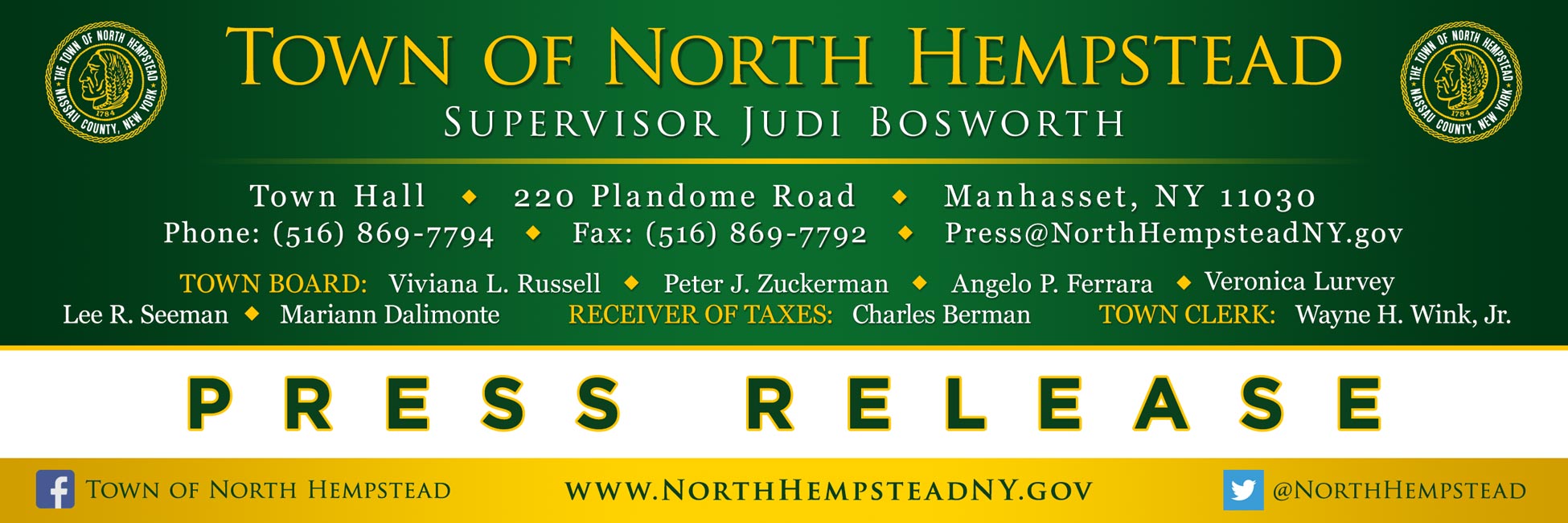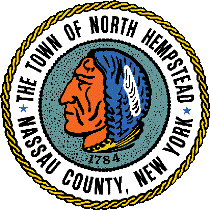
FOR IMMEDIATE RELEASE: August 19, 2020
MEDIA CONTACTS: Gordon Tepper, Rebecca Cheng, Matthew Leonenko and Michael Anderson | (516) 869-7794
Town Reminds Residents How to Reduce Stormwater Pollution
North Hempstead, NY - North Hempstead Town Supervisor Judi Bosworth and the Town Board would like to remind residents how to prevent and reduce stormwater pollution, by providing some helpful tips.
Stormwater is the result of the water from rain or melting snow that flows into drainage infrastructure, like storm drains and catch basins; this untreated water does not absorb into the ground, but instead migrates into our local waterways and streams. Untreated stormwater can carry debris and pollutants which can lead to the destruction of aquatic life and habitats and even impact the health of our drinking water.
“We want to remind residents that it is easy to do their part in helping to reduce stormwater pollution,” said Supervisor Judi Bosworth. “Stormwater runoff can transport pollutants and debris into our lakes, rivers and waterways. This can lead to harmful conditions for wildlife and negatively impact the quality of our drinking water.”
Residential Stormwater Tips Include:
- Pick up after your dogs and properly dispose of pet waste; it should always be flushed, or wrapped and disposed of in garbage.
- Dispose of household hazardous waste such as paints and fertilizers at one of the Town’s S.T.O.P. (Stop Throwing Out Pollutant) events.
- When repairing your vehicle be sure to do so in a careful manner, and prevent pollutants such as oil and other automotive chemicals from staining your driveway or running into the street.
- Minimize the use of synthetic pesticides and fertilizers whenever possible. Be sure to follow the instructions on the packages to prevent excess usage, and consider replacing your turf yard with native plants (which require minimal chemicals and watering). Also consider purchasing a composter through the Town’s composting cooperative to create rich organic fertilizer for your garden.
- Never litter! All man-made garbage, especially cigarette butts, creates a risk to wildlife and leaches chemicals into the environment. Do not sweep garbage into storm drains as it also blocks the drains and can create flood risks.
- Water should be kept onsite and an effort to reduce impervious surfaces should be made whenever possible- consider making a rain garden on your property, so that stormwater can filter slowly into the ground instead of rushing into the street. Rain gardens also provide food and habitat for wildlife, and help recharge and purify our drinking water supplies.
The Town is also airing a public service announcement about stormwater on its TV station and social media pages.
